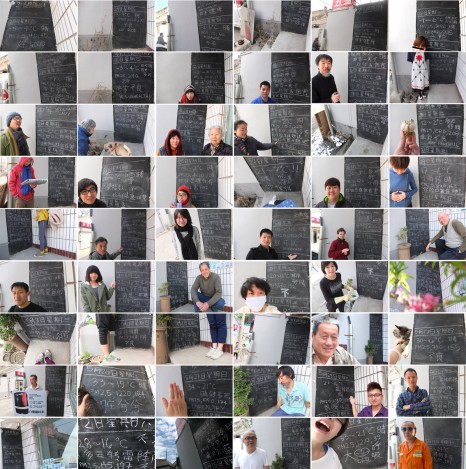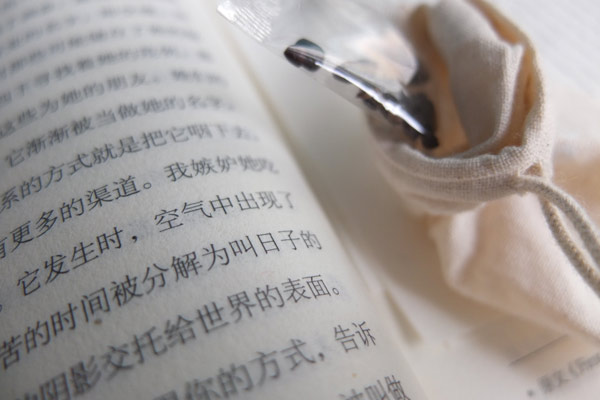
I told her about how your gifts are always somehow a burden. You know I’ll keep them, don’t you, all this junk offloaded over the course of these years, it’s moved with me across the continent and across the city, taller piles each time, folders and envelopes and things scrawled with HB pencil at various degrees.
But maybe this time I can finally part with something, fortunate doubles, two gifts that i already have. One about a month older, given as a free gift at a liquid nitrogen frozen ice cream parlour (fashionable sunflower or more fashionable morning glory?), and the other, just a day or two younger than yours, when I bought the same issue of a literary bi-monthly not recognising where those ripped pages had come from. I’ll daisy chain your generousity, hoarder friend, no matter how i cringe inside when he talks about change. and it wasn’t even the change which we feared, just the way he said it. haven’t you told me many times to let go?
它发生时,空气中出现了叫做天气的变化,而此时低飞的子弹仍然被叫做朋友,痛苦的时间被分解为叫日子的间隔。在那时,太阳仍然恩宠这世界的事物,让它们将偶尔的阴影交托给世界的表面。每天都有些东西掉落在我身上,我的温度改变着。温度是另一种提醒你的方式,告诉你你只是自己,而不是别的什么;它让你和周围的一切分开。那些温度的变化被叫做情绪,它们有着好玩的外国名字,但我已经记不得它们了。对于发生在我身体之外的任何事情我都没有记忆能力。我记不得该如何准确地说这个短语:“我抱歉。”
This was when changes in the air were known as weather, when low-flying bullets were still called friends, and periods of suffering were broken up into intervals called days. Back then, the sun still honored the world’s objects by letting them contribute the occasional shadow to the surface of the world. Everyday something fell on me and my temperature changed. Temperature was another way to remind you that you were only yourself and nothing else; it let you feel apart from everything around you. These changes of temperatures were called moods and they had interesting foreign names, but I no longer recall them. I have no memory for anything that happens outside my body.
I cannot recall the precise words for the phrase: “I’m sorry.”
本∙马可斯 Ben Marcus,from that literary bi-monthly, on the first, future of love(但汉松翻译)…
Posted by 丫 | reply »immigrant’s on kawara
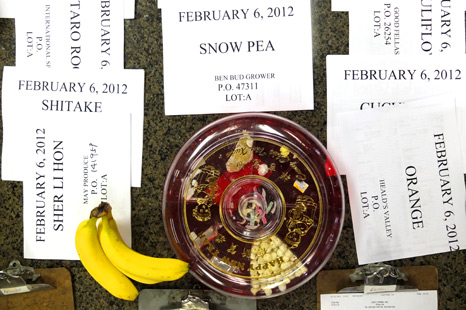
祝您…这龙年初十五 wishing you, on the fifteenth day of a new lunar year
Posted by 丫 | reply »for rene, wendy, small O and rancière’s translator steven
The waiting room of the Department of Motor Vehicles is of course a dismal place: expectedly generic cream-coloured walls, empty except for an L.E.D. number call board and the state logo plaque, a television in the corner and a single formica counter top with ball-point pens on chains attached to it. The rows of chairs are arranged in two directions, presumably for maximum television visibility, but most people look down at mobile phones anyway, or stare into space somewhere beyond the range of the television set.
But today it is an exciting scene to return to, and waiting vacuously feels like a nostalgic act. It looks exactly the same as it did when I came here many years ago, the same bureaucratic cream wall for the same bureaucratic procedure. And for all it’s clichédness, i’ve missed the variety of colour presented behind all that blankness of expression that can only be witnessed in North America. There are probably as many planets and cultures here as there are individuals in the waiting room, but they’ve cleverly staggered the numbering system so that we don’t examine things too linearly. An Asian boy wearing a shiny black down jacket sits down next to me, his transparent document folder neatly organised with all the required paperwork. He doesn’t have to wait too long, and when his number is called I feel the surprise in the black-rimmed eyeglasses slouched on his nose as he walks away. There is a bearish old man who inches across the room with a walker, but his loud, craggy voice with a strong southern accent (enough to satisfy Michael) flirts with the DMV employee like a slick, young stud; other people in the waiting room smile with their heads down. Everyone is polite.
A skinny, stereotypically troubled looking girl (black eyeliner) wears a sleeveless short dress and lazily kicks her three bags——two black and one teal with an E.T. airbrush print on one side——on the ground in front of her as she moves up the queue. A mother and her two daughters, all dressed in black, wait seated together in the row in front of me. The girls take turns using their iPhones or handheld mirrors to check themselves in preparation for having new ID photos taken. Mother gets up at one point to remind the DMV employee to replenish the toilet paper in the women’s restroom and upon her return, says to the girls, “Well…that’s taken care of.”
Beyond a staggered numbering system of waiting, it is difficult to know whether or not we exist in the same time-space. How did you assume that there was a consensual notion of reality? When could we have used the word “us”? For all our attempts to describe it so, how do we know a relation?
My thoughts move from the backs of people’s heads through to the ninja movie on TV. Flying black-clad zombies are pierced by tips on how to save money and political campaign advertisements. There aren’t any plants here. The mini-blinds along the windows are all open to differing degrees. It’s cloudy outside.
Attention diverts to my own electronic devices now, too. I brought the silver and black mobile phone you left when you moved away. I put my SIM card in it and suddenly our lives are mingled into one interface, except that much of mine is sharpened into little rectangles of an unrecognised encoding. Bureaucracy, an organised form of protectionism, just as easily renders us illiterate as it claims efficiency. For the same reason it is not possible to delete the folder of your text messages, so these few months of your life stay stuck in my hands, another life in another city not here, amidst 60 odd foreign faces at the Department of Motor Vehicles. Everyone looks bland here, but somehow it makes certain relations all the more apparent, and I feel close to you somehow, looking inside-out. I wish you were here to pass the time with me, to run errands together and wait in line and make bureaucratic procedures intimate, like bitter jokes about getting married and having kids.
These are momentary islands of waiting for another radical shift of the senses. Waiting is like insurance for belongingness, and realising now that I’ve missed you all this time I feel a closeness that only occurs in distance. not sure whether I prefer it this way or not.
I ask the attendant behind the computer how long the wait is. “That’s the question of the day”, he quips, and of course we both know that we can never really know how long we have to wait. Ask how much work we can get done in an interim period, or ask how a simple quip and come-back rides us through the day. Ask a slippery American tongue, ask for a decade. When I asked her once about love she said she would choose the option that gave the most possibility. But even no is a possibility. So I try not to count too much.
Posted by 丫 | reply »the heart is also a muscle
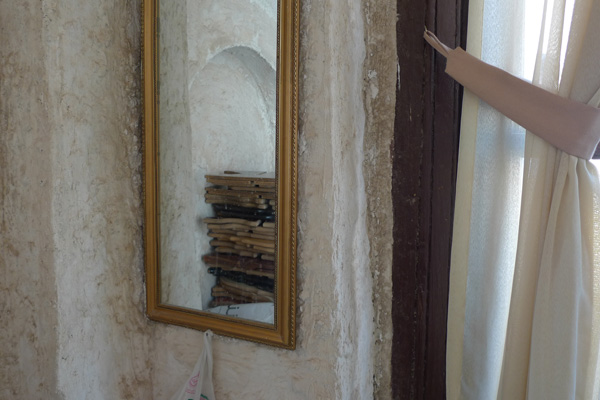
six visas and ten airports later. your life an extended non-place, where did the summer go?
the fear of atrophy.
you return after almost three months and find someone had picked up all the chestnuts again and placed them one by one on the brick ledge in the courtyard, like that autumn four years ago (“are the questions answers?”). the closest you could now get to a feeling of home.
nostalgia.
you’ve been writing that letter that you never want to end. when that letter ends, everything ends.
Posted by f | reply »gliding over surfaces
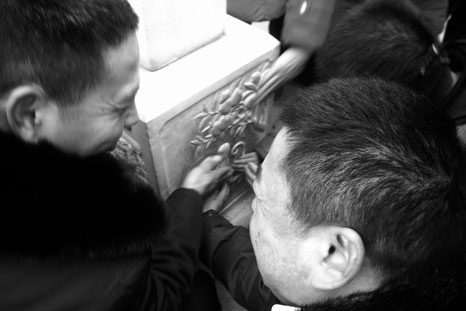
what is sustenance but rhythm, and if it’s not there forced anyway, never listening, because one thought that rhythms should be maintained, like obligation, quitting all those times but never actually good at transitions. oh! all a front!
Posted by 丫 | reply »stretching out, levitation
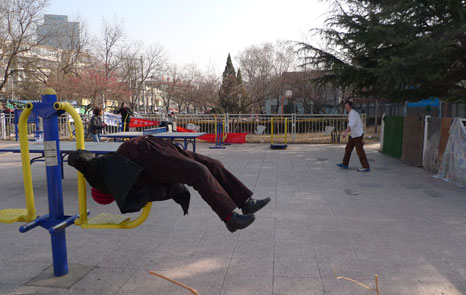
realistically speaking
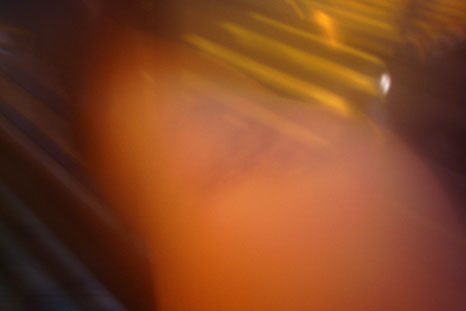
You spoke of the beginnings of a new metaphor with which we should look at our present condition, like living in Beijing, realistically. Our metaphors come from bicycle encounters and the emotional outcroppings of the everyday. at the time i could only see flesh as a gliding, swerving in and around vehicles, going without cutting corners. We laughed about the flows.
The flesh as meat——not as skin, as I had previously so imagined——is a space of tightness, of form and intimacy and movement as a squeezing of space. Skin as a gliding over and around, all options open except that one moves merely as a compatriot of gravity, touching, just going. Where do we look, realistically, while on our bicycles, in encounter? Nobody cares. Movement is a question of whomever may 让 first, usually predicated upon size. But let us enlarge our frame of view. To examine our reality here is a fleshy matter, full of scars and circumstance. Situationism could be given, rather, a form of agency. Adjacency. Victorious life proposes a next-to. If we were to give up subjectivity and objectivity, can movement presume, ex-stasis? Flow is always a making up of what came before, along the lines of a scar, reaction and healing. Let us make up for imperial autocracy, let us make up for capitalist pigs, let us make up for the sick yellow man! And so we are stuck in a striving or a being, reactionary.
But Vitanza’s scar is a middle place between flesh and skin, along surfaces and imbedded within. Realistically, we find ourselves covering over, working through, both as a form of being and of representation, as spectators and actors, as lifeforms headed inevitably towards death. Is such certainty a place of flesh or of skin? We fall asleep with the TV, we learn to love and hate our lovers. This affect is of flesh and skin, multidirectional, surfaces and interiors all at once.
Scar as both a place and temporality, a contextification. It is the grounding memory of affect, a node upon the flow of the body, or movement ex-stasis. Flashbacks of life in times of death should tear our bodies from such ecstasies; these are the groundings we can never break away from, realistically.
I slipped and hurt myself today, on or off cycles, wet pavement. In the midst of mutual shock, she snapped at me. I’m sorry, I said.
…in the sign of the scar—where foreground and background collapse—negotiating between life and death, skin and scar, public and private, I will hallucinate on a series of cultural objects that would provide us with exemplary ways of “living on” in the scar of the sign as Dasein. But as I do that, note that I do that semiotically across the images being unfolded over there. Da Sein. But. Of Sign. The episode of “Scar Tissue.” I am trying to situate myselves, through a series of interruptions, corruptions, eruptions, between over there and here. Becoming be-tween. Ec-static. Perhaps after a while you, too, will situate yourselves in between there and here.
–Victor Vitanza, “Design as Dasein”: Scar, … to be accompanied by video
Posted by 丫 | more »hide and seek, a life
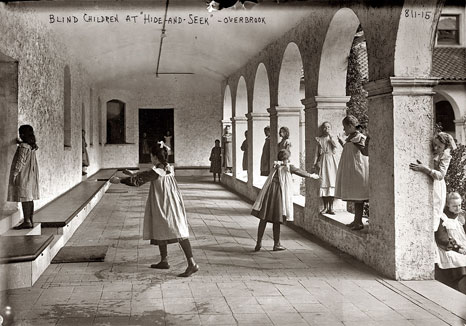
blind children playing hide and seek, 1912 (via julian kücklich)
“i remember that the verb to find [trouver] does not first of all mean ‘to find,’ in the sense of a practical or scientific result. to find is to turn, to take a turn about, to go around. to come up with a song is to turn a melodic movement, to make it turn. no idea here of a goal, still less of a stopping. to find is almost exactly the same word as to ‘seek’ [chercher], which means to ‘take a turn around.'” (maurice blanchot, the infinite conversation)
Posted by f | reply »